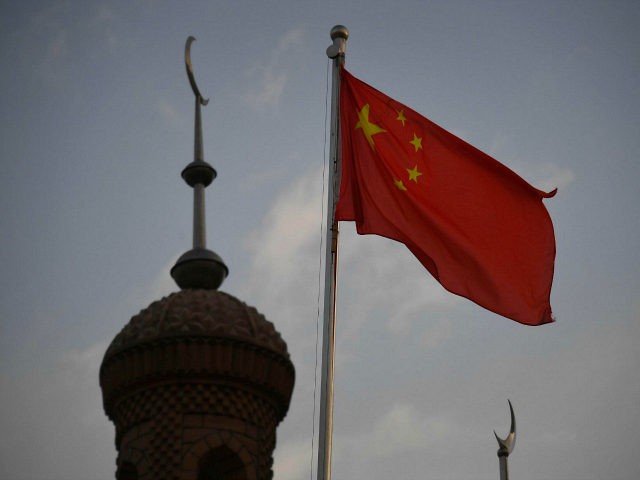For Muslims worldwide, today marks the start of Ramadan, an Islamic holy month of fasting and prayer. For ethnic Uyghur Muslims in northwestern China’s Xinjiang province, observance of Ramadan – banned by the Chinese Communist Party (CCP) – could land them in prison.
According to the World Uyghur Congress, the CCP systematically targets Uyghurs – and other ethnic minorities, like Kazakhs and Kyrgyz people – in Xinjiang during Ramadan by burning copies of the Quran, banning halal food products, and forcing restaurants to remain open during the month of fasting.
Dusk-to-dawn fasting – one of the hallmarks of Ramadan – is designated a “sign of extremism” in Xinjiang by the CCP, according to a report published last summer by Amnesty International. During Ramadan, other signs of “extremism” include “conducting business as usual” and “women wearing religious clothing to work,” Radio Free Asia (RFA) reports.
These displays of religious affiliation, whether open or private, are prohibited by the communist nation. Uyghurs caught demonstrating these rituals could be punished with an assignment to a Chinese concentration camp, according to RFA.
Since 2017, the CCP has sent between 1 million to 3 million Muslim ethnic minority people to concentration camps. China calls the camps “re-education camps” or “political training centers” and officially denies the existence of detention camps in Xinjiang. Uyghurs accused of harboring “extremist” and “politically incorrect” thoughts are shipped to the camps, according to RFA’s report.
The ruling Han Chinese majority has long discouraged minority religious and cultural practices in the region, home to roughly 10 million ethnic Uyghurs, amid longstanding ethnic tension between the Han and Uyghurs. The Turkic-speaking Muslim Uyghurs of Xinjiang are predominantly Sunni Muslims.
In 2009, after a series of particularly violent clashes between Uyghurs and Han in the capital, Ürümqi, attacks between the groups increased steadily, according to Amnesty International. The CCP responded to the rise in tension by cracking down on Muslim Uyghurs in Xinjiang, citing a need for greater security.
Any behavior that distinguished Muslim Uyghurs from Han Chinese was designated “extremist activity” by the CCP, punishable by jail time, according to RFA. Authorities began arresting, jailing, and shooting dead Uyghurs suspected of being dissidents or separatists.
This security crackdown escalated until 2017 when the CCP began detaining up to one million Uyghurs in concentration camps indefinitely, RFA reports. Human rights organizations around the world have decried the practice.
On April 1, it emerged that hundreds of Uyghurs from Xinjiang have been assigned to work in Chinese factories as “slave laborers” in an effort by the CCP to compensate for gaps in its economy and workforce due to the ongoing Chinese coronavirus pandemic, according to reports by human rights groups.

COMMENTS
Please let us know if you're having issues with commenting.